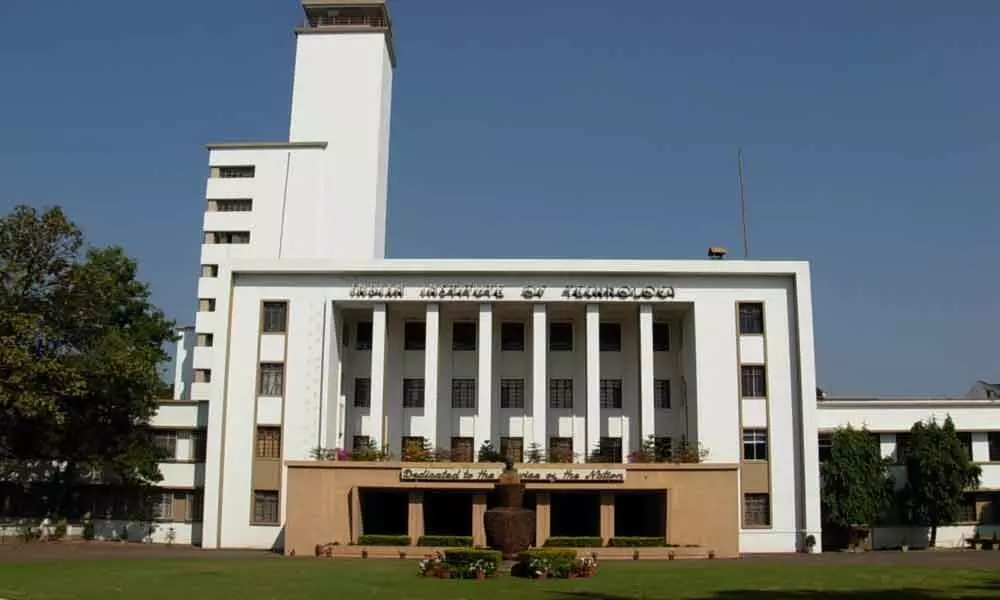Live
- Ambedkar's vision for country neglected by Congress, says PM Modi
- BJP will decide my future role: Raghubar
- BJP's primary objective is ensuring Justice for marginalized communities; Purandeswari
- Shruti rings in the festive season with a goth-inspired Christmas celebration
- Vishwak Sen’s bold new look from ‘Laila’ unveiled
- Christmas marked by traditional zeal and fervour in NE states
- AM Ghazanfar added to Afghanistan's squad for upcoming Tests against Zimbabwe
- PM Modi lays foundation stone of Ken-Betwa river link project in MP
- BJP MLA Munirathana faces egg attack in Bengaluru, blames Dy CM Shivakumar
- Allu Aravind, Dil Raju, and Sukumar Announce Rs. 2 Crore Aid for Sri Teja
Just In
Kolkata: IIT Kharagpur identifies new areas of use for existing drugs


Researchers from the School of Medical Science and Technology (SMST) at IIT Kharagpur have identified new drug repurposing candidates - existing drugs for some particular diseases, which can be used to treat other disorders - for induction of fetal hemoglobin to treat beta thalassemia patients, the institute said on Friday.
Kolkata: Researchers from the School of Medical Science and Technology (SMST) at IIT Kharagpur have identified new drug repurposing candidates - existing drugs for some particular diseases, which can be used to treat other disorders - for induction of fetal hemoglobin to treat beta thalassemia patients, the institute said on Friday.
With blood disorders or hemoglobinopathies such as beta thalassemia and sickle cell anemia affecting millions, drug-induced increase in fetal hemoglobin has been shown to improve the condition of those affected with these blood disorders.
However, as these drugs have side-effects, scientists are exploring if "repurposed" or existing drugs can be used to treat these disorders.
To discover which drugs could be used for possible repurposing, the researchers at the Regenerative Medicine Lab at the Indian Institute of Technology (IIT) Kharagpur studied the working of miRNAs (micro Ribonucleic Acids) which regulate the pathways along which the production of fetal hemoglobin is stimulated.
The researchers observed that Curcumin, found in turmeric, and Ginsenoside, found in the roots of Ginseng, both known for their medicinal properties, could go a long way in treating blood disorders like thalassemia and sickle cell anemia. These two plant ingredients, together with approved drugs such as Valproate and Vorinostat, were found to be "most suitable for future clinical trials".
The researchers also studied how RNAs work, how they regulate gene expressions and also which chemical molecules affect their expression pattern.
The team at SMST used several bioinformatics tools to match differentially expressed miRNAs with differentially expressed genes (as found in publicly available datasets) and identify their pathways.
The team has also devised a database called "miRwayDB" to provide comprehensive information of experimentally validated miRNA-pathway associations in various diseases.
As many as 19 miRNAs were found to be differentially expressed in those who had high fetal hemoglobin levels in their blood.
The team also identified some unique small molecules that strongly affected the expression of those 19 miRNAs.
Of the five molecules identified by the research, three - deoxycytidine, Valproate and Vorinostat - are commonly used to treat other diseases. For example, Valproate is used to treat seizure disorders in childhood and Vorinstat is an anticancer agent.
"These identified markers expand our understanding of fetal hemoglobin regulatory mechanism and may have importance in designing new therapeutic strategies to reactivate its production in patients with hemoglobin disorders," said Nishant Chakravorty, who heads the Regenerative Medicine Lab and the team at SMST. The study was conducted by Chakravorty, his student at SMST, Sankha Subhra Das, and Rashmi Sinha of IIT Kharagpur's inhouse medical facility B.C. Roy Technology Hospital, and published in the "Gene" journal.
"Medical practitioners nowadays widely use repurposed drugs. An example is Sildenafil, which is used to treat impotence in males as well as neonatal pulmonary hypertension," said B.C. Roy Post Graduate Institute of Paediatric Sciences Professor Anish Chatterjee.
According to Chatterjee, research into repurposing of drugs is important and could even lower the cost of medical treatment as cheaper drugs, instead of the costly ones presently used, could be used to treat diseases.

© 2024 Hyderabad Media House Limited/The Hans India. All rights reserved. Powered by hocalwire.com






